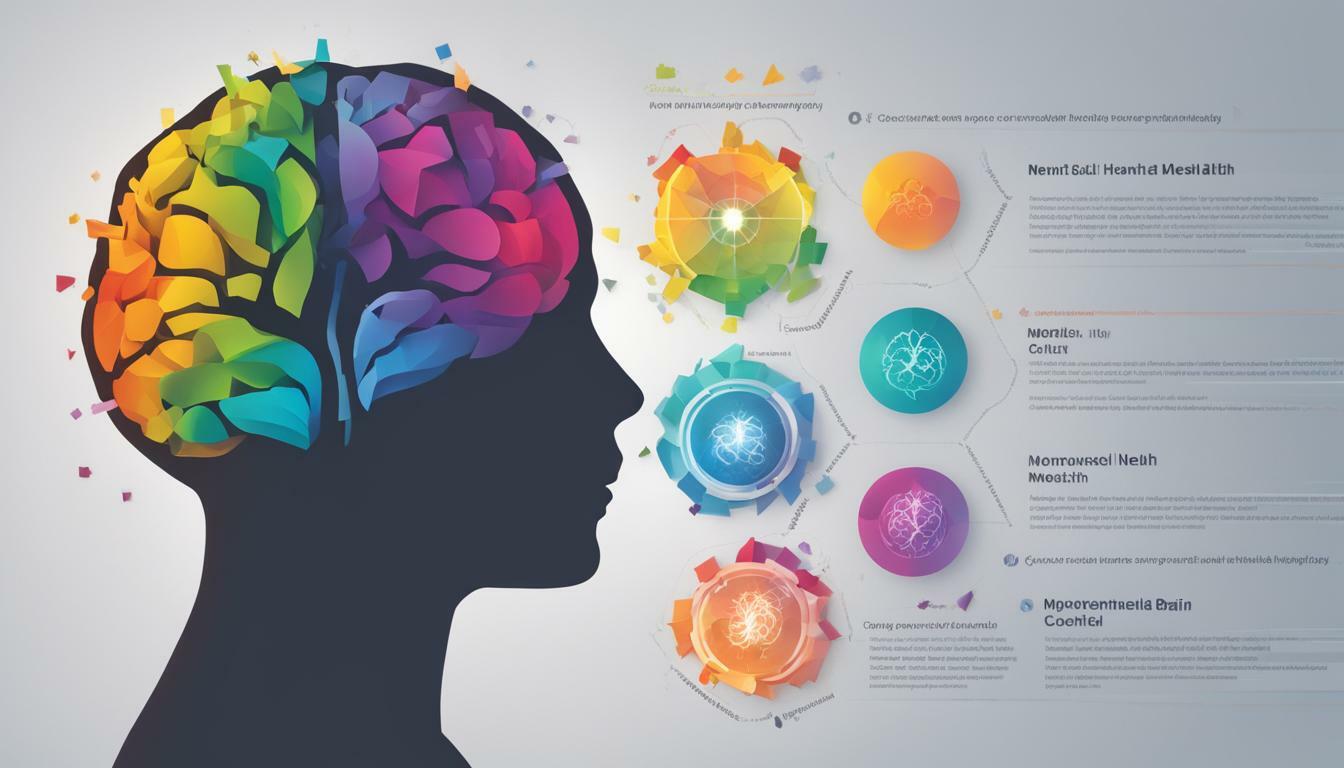Mental health is a crucial aspect of overall well-being, yet many people still struggle to understand what it truly means. This comprehensive guide aims to provide a clear understanding of what mental health means and how it affects our lives in the United States.
Key Takeaways:
- Mental health encompasses emotional, psychological, and social well-being.
- Good mental health involves taking care of oneself and maintaining a strong support system.
- Factors such as genetics, environment, traumatic events, and social factors can contribute to mental health problems.
- Seeking appropriate help and support is crucial for achieving and maintaining mental well-being.
Defining Mental Health
Mental health refers to a person’s emotional, psychological, and social well-being. It affects how individuals think, feel, and act, and it also determines how they handle stress, relate to others, and make choices. Mental health is important at every stage of life, from childhood and adolescence through adulthood.
Mental illnesses are common but treatable. They can affect anyone, regardless of age, race, gender, or socioeconomic status. Mental illnesses are medical conditions that disrupt a person’s thinking, feeling, mood, ability to relate to others, and daily functioning. They can result from a combination of biological, environmental, and genetic factors, as well as other risk factors such as substance abuse and experiencing trauma.
Maintaining good mental health involves finding a balance in all aspects of life: physical, mental, emotional, and social. It includes taking care of oneself, maintaining healthy relationships, managing stress, and seeking help when needed. Mental health can be enhanced by practicing self-care techniques such as getting regular exercise, eating a nutritious diet, getting enough sleep, and engaging in activities that bring joy.
Recognizing the signs and symptoms of mental health issues is crucial for early intervention and treatment. Some common signs can include persistent sadness or irritability, changes in eating or sleeping patterns, difficulty concentrating, withdrawing from social interactions, and experiencing extreme mood swings or thoughts of self-harm or suicide.
Promoting mental health also involves reducing the stigma and discrimination associated with mental illness. Education and awareness campaigns can help reduce misconceptions and increase understanding. Providing accessible and effective mental health services and support is essential to ensure that individuals can receive timely and appropriate care.
It is important to remember that mental health is a continuum, and everybody’s experience is unique. Seeking professional help from mental health professionals such as therapists, counselors, or psychiatrists can provide valuable support and guidance in managing mental health issues.
In conclusion, defining mental health involves understanding its impact on individuals’ overall well-being and recognizing the signs and symptoms of mental illness. Taking care of one’s mental health is crucial for leading a fulfilling and productive life, and it is important to promote awareness, reduce stigma, and ensure accessible mental health services for all individuals.
The Importance of Mental Health
Maintaining good mental health is crucial for several reasons. It promotes improved quality of life, increases resilience, and enhances productivity. Mental health is interconnected with physical health, meaning that taking care of mental health can have positive effects on the body as well.
Individuals with good mental health are better equipped to handle stress and overcome challenges. They are more likely to form and maintain positive relationships, both personally and professionally. In school and work settings, individuals with good mental health are more productive and tend to have better academic or professional performance.
Self-care activities such as exercise, getting enough sleep, and practicing stress-management techniques are crucial in promoting and maintaining good mental health. Seeking professional help through therapy or counseling can also be beneficial in managing mental health concerns and preventing potential crises.
However, mental health is often stigmatized, which can lead to individuals avoiding seeking help even when they need it. Breaking down these barriers and creating a supportive environment for individuals experiencing mental health challenges is crucial for promoting overall well-being. By addressing mental health stigma, individuals can feel more empowered to seek help and access the resources they need to maintain good mental health.
Several organizations and initiatives work towards destigmatizing mental health and promoting its importance. These efforts aim to empower individuals to seek help, provide resources to those in need, and create a society where mental health is valued and given the attention it deserves.
In conclusion, good mental health is essential for overall well-being and should be prioritized alongside physical health. With proactive steps in caring for mental well-being and promoting awareness, individuals can lead fulfilling lives and contribute to a society that supports mental health.
Common Mental Health Disorders
Several mental health disorders are prevalent today, each with its own set of symptoms and treatment approaches. Depression is a mood disorder characterized by persistent feelings of sadness and loss of interest in activities. Anxiety disorders involve excessive and intrusive worry, fear or panic, and can interfere with daily activities. Bipolar disorder is a mood disorder that involves episodes of mania (elevated or irritable mood) and depression. Schizophrenia is a chronic and severe mental disorder that affects how a person thinks, feels, and behaves. Eating disorders involve disturbances in eating habits or behaviors, and can result in severe physical and mental health consequences.
It is important to note that seeking professional help and support is crucial for individuals with these disorders to manage their symptoms and improve their overall mental health and quality of life. Treatment approaches can vary and may include therapy, medication, or a combination of both. Proper diagnosis is also essential for effective management of these disorders.
Promoting Mental Health
Maintaining good mental health involves adopting healthy habits and seeking support when needed. Here are some strategies that can help promote mental well-being:
- Practice self-care: Taking care of oneself is crucial for promoting mental health. This includes getting enough sleep, eating a balanced diet, and engaging in physical activity regularly.
- Build social connections: Creating and nurturing social connections can help reduce stress and improve overall well-being. Joining a group or club, volunteering, or simply spending time with loved ones can help build meaningful connections.
- Seek professional help: Seeking help from a mental health professional can be an effective way to manage mental health concerns. This can include therapy, medication, or a combination of both.
- Promote mental health education: Education and awareness about mental health can help reduce stigma and promote understanding. This can involve attending workshops, reading books or articles, or simply having open and honest conversations with others.
By adopting healthy habits and seeking support when needed, individuals can prioritize their mental well-being and lead happier, more fulfilling lives.
Recognizing Mental Health Stigma
Despite progress, stigma around mental illness and seeking help still exists. Stigma refers to the negative attitudes and beliefs surrounding mental health conditions, often leading to discrimination and further hindering people from seeking help.
This kind of stigma can lead to a lack of understanding and empathy, resulting in individuals feeling isolated and ashamed. It can prevent people from seeking treatment and support, which can further exacerbate their condition. Recognizing this stigma is the first step towards breaking down barriers and promoting mental well-being for all individuals.
To combat mental health stigma, it is crucial to create a supportive environment. This includes challenging negative attitudes and beliefs, promoting education and awareness, and offering support and understanding to those who are struggling. It is important to remember that mental health conditions are common and that seeking help is a sign of strength, not weakness.
If you are struggling with your mental health, it is essential to know that seeking help is a brave and positive step towards recovery. You are not alone, and there is support available to help you manage your condition and improve your overall well-being.
Section 7: Conclusion
In conclusion, understanding mental health is integral to maintaining overall well-being. Mental health affects various aspects of life and is interconnected with emotional, psychological, and social well-being, as well as overall quality of life. It is important to maintain good mental health in order to improve quality of life and increase resilience and productivity. Furthermore, mental health is connected to physical health, making it a key component of overall well-being.
It is important to seek help and support when dealing with mental health disorders, as they can significantly impact daily life. Proper diagnosis and a combination of therapy, medication, and support can be effective in managing common mental health disorders such as depression, anxiety disorders, bipolar disorder, and schizophrenia.
Promoting mental well-being is also crucial. Engaging in self-care, building social connections, seeking professional help, and promoting mental health education are all strategies that can help promote mental well-being.
However, mental health stigma continues to be a barrier for individuals seeking help. It is important to challenge stigmas and create a supportive environment for those with mental health disorders. By doing so, we can help to break down barriers and provide the necessary support for those struggling with mental health issues.
Overall, understanding mental health and promoting mental well-being is crucial for overall well-being. By seeking help, promoting awareness, and challenging stigmas, we can create a society that is better equipped to support and care for those struggling with mental health issues.
FAQ
Q: What is mental health?
A: Mental health refers to a person’s emotional, psychological, and social well-being. It affects how we think, feel, and act, influencing our relationships, decision-making, and coping abilities.
Q: Why is mental health important?
A: Maintaining good mental health is crucial for several reasons. It improves our quality of life, increases resilience, enhances productivity, and has implications for physical health.
Q: What are some common mental health disorders?
A: Some common mental health disorders include depression, anxiety disorders, bipolar disorder, and schizophrenia.
Q: How can I promote my mental health?
A: You can promote your mental health by engaging in self-care activities, building social connections, seeking professional help when needed, and educating yourself and others about mental health.
Q: What is mental health stigma?
A: Mental health stigma refers to the negative attitudes, beliefs, and stereotypes surrounding mental illness. It can discourage individuals from seeking treatment or sharing their experiences.
Q: How can mental health stigma be addressed?
A: Mental health stigma can be addressed by challenging stigmas, creating a supportive environment for individuals with mental health disorders, and promoting awareness and understanding.





